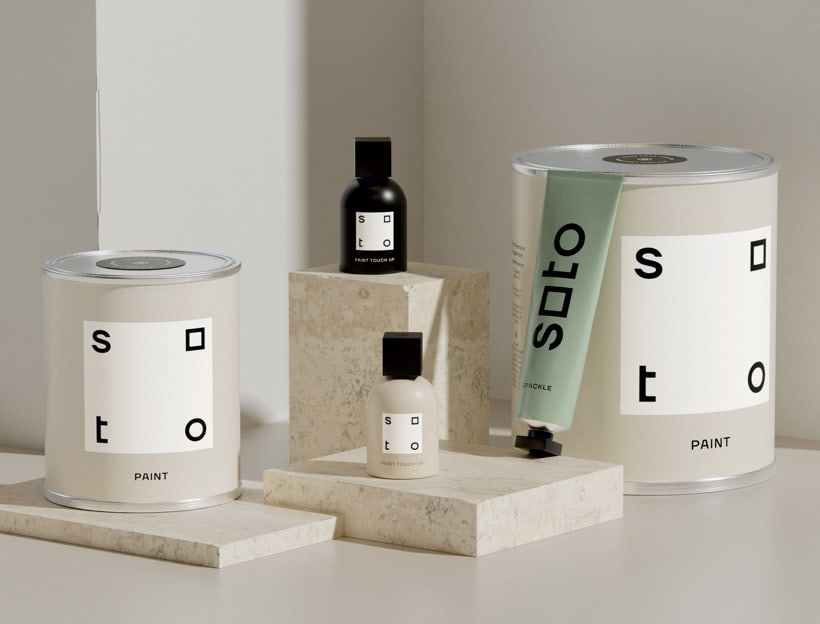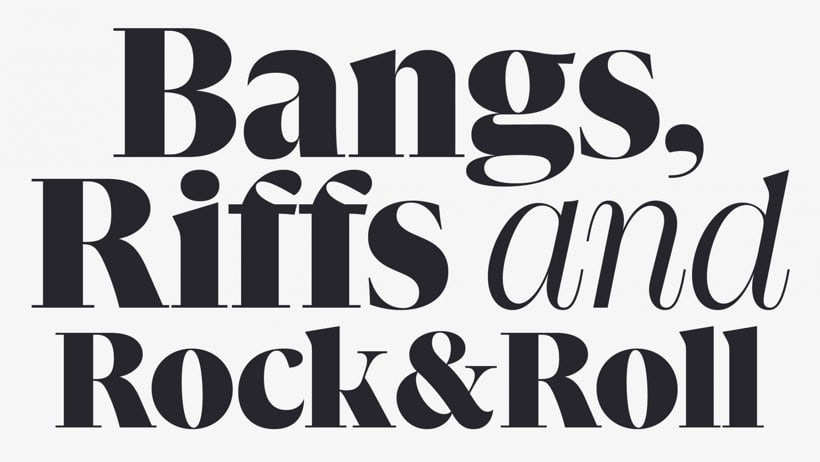 |
| |
|
|
|
Health-related information on the web is, at its best, biased towards search engine optimisation and, at its worst, promoting some health influencer’s healing crystals. With so much hocus-pocus advice floating around, it’s difficult to pick out reliable, evidence-based criticism of Western medicine.
When I came across a podcast episode titled Why too much medical treatment is causing more harm than good I was justifiably sceptical. The episode is a live recording of a conversation with orthopaedic surgeon Ian Harris about his co-authored book Hippocrasy: How doctors are betraying their oath.
The conversation starts with the premise that 4 out of 10 surgical procedures are unhelpful, and in some cases harmful; that overtreatment and overdiagnosis are rife; and that too many doctors rely on anecdotal observation rather than unbiased, scientific evidence in their practice.
As someone who recently had to get a range of expensive scans done, I found Harris’ view of ‘overimaging’ pretty compelling: he believes that knowing more about our bodies can sometimes be detrimental to our health. That’s because an MRI scan of, for example, a spine will almost always show some evidence of an ‘abnormality’. And armed with visual evidence, we’re more likely to get surgery, which in many cases is not only not helpful but actively harmful.
Similarly, Harris believes that doctors are overprescribing medication, giving drugs to people for “vanishingly small benefits”, and yet exposing them to the same harms/side effects and costs.
Unsurprisingly, he’s not a fan of profit-driven healthcare systems, pointing out that they tend to be less efficient, because they drive activity, not outcomes. “There is a reason why spine fusion surgery in the US is ten times the rate compared to the UK, where surgeons mostly get paid a fixed salary.” (paraphrased) He quotes a US study that showed that the biggest predictor of whether a patient would get an x-ray or not, was whether the physician owned the machine and can charge for the image.
There are plenty more highlights from this conversation that I can’t fit into an intro. Of course, Harris is biased in his own ways (he admits himself), so, like every opinion on the internet, take his view with a grain of salt. But before you poke holes in his theories, it’s worth at least listening to the episode in its entirety (or better still, read his book), as he touches on more serious illnesses, such as cancer, too.
He offers one good piece of advice that’s worth considering regardless of what you think of him: to always ask your doctor the most obvious, but often ignored question: ‘What would happen if I do nothing?’ – Kai
|
| |
|
Become a Friend of DD for $1.80/month →
With a modest yearly contribution you’re not only helping keep Dense Discovery going, you also receive special discounts and get access to the DD Index, a searchable catalogue of past issues. (And it removes this message.)
You receive this email because you subscribed to Dense Discovery, a weekly newsletter at the intersection of design, technology, sustainability and culture. Writing to you from Melbourne is Kai Brach. Do you have a product or service to promote in DD? Sponsor an issue or book a classified.
|
| |
Get Smarter Every DaySPONSOR
|
Brain food, delivered daily
Every day we pick 5 links from around the web that make you smarter, tailored to your interests, curated from 10k+ sources. Refind is a must-read newsletter loved by 100k+ curious minds. Sign up for free today.
|
|
| |
Apps & Sites
|
|
Still in beta, My Place aims to be a better Couchsurfing with the ease of use of Airbnb. Listings are for real, lived-in homes only (not holiday rentals) and can be made available to friends and friends of friends only. There is no money exchange on the platform – places are offered for free or ‘at cost’.
|
|
|
This little web app allows you to edit PDFs online, including adding text and signatures. A handy tool for filling out PDF forms on the go.
|
|
Open-licensed icon database
|
|
There are tons of free icon websites, but few offer straightforward download options without having to go through an account setup first. SVG Repo contains over 500,000 open-licensed vector icons and symbols that are easy to search and instantly downloadable.
|
|
Computer-generated handwriting
|
|
Ever wanted to use unique, natural handwriting in a design but didn’t like your own? This website generates variable handwriting in 9 different styles. You can adjust speed, legibility, and stroke width, then download the result as an SVG file.
|
|
| |
Mini-Interview with Emily Goligoski
|
Beyond hybrid work and location changes owing to the pandemic, what kind of long-term shifts do you foresee for so-called ‘knowledge workers’ in regards to their relationship with their employer and work more generally?
Recent events are radically changing our workplaces and the relationship with our careers. We’re seeing unprecedented quit rates, increased labour organising, and pay increases by companies that have historically opposed them, like Walmart. Another indicator is pay transparency legislation across the US.
We see a large-scale transition from workplace rigidity to flexibility. This includes autonomy over when people work: we notice more organisations make ‘core working hours’ explicit. The Future Forum team at Slack has written about schedule and location flexibility and the many benefits they offer to knowledge workers, particularly women and people of colour. When people have more control over their schedules and more agency overall, they are more likely to stay in their jobs, which matters amid global competition for talent.
With people living and working longer, what can we expect from having multiple generations in the workforce?
Our editorial and research teams are studying this now. We’re looking at changes in culture and engagement, such as how to overcome age-related bias. I’m curious about improvements in continuous learning, like two-way mentorship and upskilling, especially in light of many baby boomers retiring. Relatedly, we know that younger generations are reshaping work today; for example, they are more likely to expect that executives will practice servant leadership, prioritising and empowering employees.
Younger staff also arrive with a different set of goals for what they’ll do on the job. Research from the Edelman Trust Barometer about trust in the workplace shows that four in five Gen Z employees have a strong expectation that, in their jobs, they will have opportunities to help address social problems or support their local communities.
Impact, purpose, values-alignment – employees are increasingly looking for these themes in their job search. What, in your view, is driving this trend and how will it change workplaces over coming years?
In our team’s recent research, employee mental wellbeing topped the list of considerations that executives and their deputies say they’re actively looking to solve with staff. This wasn’t the case in years past, and mental health benefits are just one approach toward creating thriving workplaces. The path out of the pandemic presents a once-in-a-lifetime opportunity to reset to a model that’s fairer for all, and to make our work more purposeful, productive, and flexible.
We’re actively watching the power of employee voice. It can result in more humane management and leadership of people’s full lives, including caregiving. Smart leaders should also make good use of ‘shocks to the system’, including employee walkouts, company scandals, mergers, or news events, to restart conversations that may have stalled out of employees’ understandable fears of speaking up.
There has been a lot of focus on DEI (diversity, equity and inclusion) in the last decade, especially in the tech sphere. Are there signs that progress made on these issues is having a real impact?
We certainly see productive efforts toward increased employee stock ownership and board representation by underrepresented groups. We see improvement in how organisations think about their staff and leadership in terms of neurodiversity, class, and identities that extend beyond what a person looks like. (On this point, regularly surveying employees and asking about multiple variations of diversity is important to reveal insights into how various groups experience the workplace very differently.) And yet, there’s no question that organisations can be doing much more substantively – not just talking about DEI as a priority, but resourcing it with real investment – to make it possible for talent to show up and do their best work.
What are some general skills and traits that will be most useful for ‘knowledge workers’ – young and old – as the job market evolves?
A few things I look for in hiring ‘change-ready‘ people: do they bring a growth mindset and empower others? Are they anti-racist? Assuming they bring meaningful intellectual contributions, are they also thoughtful around giving and receiving feedback? Do they bring curiosity about the motivations of the people they serve with their work? Being considerate and creative with regards to the climate matters, too, to create a world where all workers thrive.
(Did you know? Friends of DD can respond to and engage with guest contributors like Emily Goligoski in one click.)
|
|
| |
Books & Accessories
|
The history and mystery of the bicycle
Those of you in love with cycling may find (or lose) themselves in this collection of essays about the history and future of the pedal cycle. “Two Wheels Good examines the bicycle’s past and peers into its future, challenging myths and clichés while uncovering cycling’s connection to colonial conquest and the gentrification of cities. But the book is also a love letter: a reflection on the sensual and spiritual pleasures of bike riding and an ode to an engineering marvel – a wondrous vehicle whose passenger is also its engine.”
|
|
The fight against disinformation
Every time I read about Maria Ressa, I’m simply in awe of her courage and perseverance. For many years now, she’s investigated and laid bare disinformation campaigns launched by the Filipino government. “Hounded by the state, she has multiple arrest warrants against her name, and a potential 100+ years behind bars to prepare for – while she stands trial for speaking the truth. How to Stand Up to a Dictator is the story of how democracy dies by a thousand cuts, and how an invisible atom bomb has exploded online that is killing our freedoms. It maps a network of disinformation – a heinous web of cause and effect – that has netted the globe: from Duterte’s drug wars, to America’s Capitol Hill, to Britain’s Brexit, to Russian and Chinese cyber-warfare, to Facebook and Silicon Valley, to our own clicks and our own votes.”
|
|
| |
Overheard on Twitter
|
|
The thing I find most exhausting about tech culture is that ‘innovation’ is held up as a core value. Novelty is not inherently good. I’m more interested in doing what’s effective and humane than in doing what’s new.
|
| |
Food for Thought
|
|
As someone currently dealing with some neuro-related pain and having to get multiple expensive scans done, this live interview with an orthopaedic surgeon was timely and very insightful. “He believes too many drugs are being prescribed, too much surgery is being performed, and there are too many unhelpful tests, scans, and overdiagnosis. The ‘business’ of medicine, Ian says, is taking precedence over what the science tells us. We should go back to the first principles of the Hippocratic oath and ‘first, do no harm’.”
|
|
|
With the increasing number of bicycles and micromobility devices in our cities, the discussion about the need and usefulness of helmets is heating up. This piece looks at recent research, showing how helmets can improve rider safety, but also stand in the way of it. “Asking individuals to spend money on helmets, lights, and reflective gear without investing in better transit culture ignores the fact that the real danger to cyclists comes from behind the wheel, not from behind handlebars. ‘We can talk about bike helmets because it’s something we can blame for individual decision-making,’ said Alison Bateman-House, an ethicist and medical historian at New York University who has studied mandatory helmet laws.”
|
|
|
I really enjoyed this essay on finding glimpses of humanity in the unlikeliest corners of the internet: in Google Maps reviews. “On the surface, these personal stories read like strangers shouting into the void, demanding for their lives to be heard and recognized. I have lived, these reviews say, I have fought and struggled and cried in the face of beauty. I have felt pain, and I have been to Taco Bell and it was only average. To review is to mark your actuality. To not review is to be lost to time in this strange, crowdsourced record of existence.”
|
|
| |
Aesthetically Pleasing
|
|
Julieanne Kost takes stunning photos of landforms and natural sceneries that are rich in colour, depth and texture.
|
|
|
Nicholas Rougeux is a Chicago-based designer and data artist whose visualisation experiments have produced a range of intricate posters. (via)
|
|
|
A beautifully muted, minimalist rebranding of Soto, a design and engineering house that produces tools for home improvement.
|
|
|
Gliko Modern is bold, yet delicate. A beautiful serif typeface that comes in three optical sizes: S for body text, M for medium-sized headlines, and L for large headlines and titles.
|
|
| |
Notable Numbers
|
|
On a list of the 10 US counties with the biggest increases in gross domestic product (GDP) between 2019 and 2021, there’s a common theme. Seven have seen major wind farm construction. One Texas county’s GDP increased from $128 million to $235 million.
|
|
|
From 2005 to 2020, the number of early deaths from exposure to PM2.5 fell by 45% in the EU. If this trend continues, the EU is expected to deliver on the zero pollution action plan target of a 55% reduction in premature deaths by 2030.
|
|
|
The global spread of vehicle ownership has been projected to double the figure of motor vehicles on the road from one billion in 2010 to two billion in 2030.
|
|
| |
Classifieds
|
|
Insights, perspectives, reflections, and conversations with some of the more humbly curious creatives you never knew. The Near Future Laboratory Podcast. Join us and listen in!
Stop wasting time on leadership coaches that make you like every other leader. Nice Weather’s human-centered approach uses your unique strengths to make you thrive. Let’s talk.
EU hosted, independent, privacy-focused video in a single line of code. Get started at mave.io
Looking for a farm fresh approach to futures design? The Manual of Design Fiction is the book for you, from the originators of design fiction over at the Near Future Laboratory!
|
|
Classifieds are paid ads that support DD and are seen by our 42,000 subscribers each week.
Book yours →
|
|
| |
The Week in a GIF
|
|
Reply or tweet at DD with your favourite GIF and it might get featured here in a future issue.
|
|
| |
| |
|















